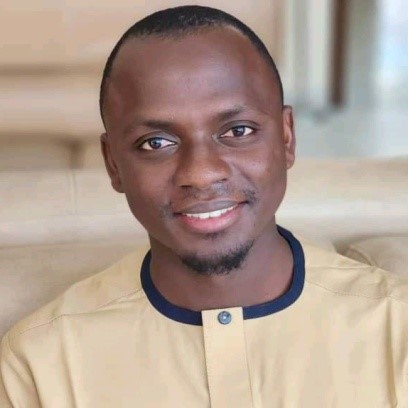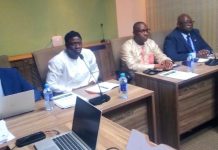By Assan Bah
The National Assembly (NA) Select Committee on Health, Refugees, Disaster and Humanitarian Relief, presented a concerning report on the state of some of the country’s health facilities. The report which was presented by the Committee last Thursday July 10th 2025, followed on the heels of the committee’s countrywide tour of health facilities and refugee settlements across the country from the 17th to the 23rd of February 2025, to assess the state of health infrastructure across the country, and to evaluate service delivery performance and review the humanitarian conditions of refugee populations within the country.
The Committee is led by Honourable Amadou Camara, the National Assembly Member (NAM) for Nianija constituency as Chairperson. After moving the motion for the adoption of the report of the Committee, Hon. Camara said that through direct engagement with facility managers such as officers-in-charge, refugee leaders, local authorities and technical personnel, the Committee was able to gather first-hand information to inform its findings, observations and subsequent recommendations.
The committee notied some progress in the health sector with the ongoing construction of five health facilities geared towards expanding health care access nationwide, and the ongoing rehabilitation of five major health facilities respectively aimed at modernising infrastructure, improve medical equipment and enhance the working environment for health care personnel particularly those in rural communities. The Committee further observed that the establishment of critical facilities at the national level, which includes the National Emergency Treatment Centre in Farato and others, is designed to enhance emergency response capabilities, improve risk management and strengthen public health resilience in line with global standards.
The committee noted that despite the aforementioned progress in the health sector, they have observed the following systematic challenges that affect the country’s health sector: The committee reports that persistent power outages and water shortages have severely constrained health care deliveries in several facilities. This, the committee said, is exacerbated by faulty solar systems, inadequate generators and poor network connectivity. The committee in its report observed that almost all the facilities they visited reported on the frequent ‘stock-outs’ of essential drugs, which they said compromised the quality of care and patient outcomes. The committee reports that staffing levels are critically low, with acute shortages of midwives, nurses, laboratory technicians and other skilled health professionals. Several facilities lack functioning ambulances, diagnostic equipment and the medical supplies necessary for effective service delivery and emergency responses. The Committee further reported that poor road conditions hinder access to health centres, especially during emergencies and adverse weather conditions; that delays in construction and rehabilitation projects were also noted, which they said was largely due to supply chain disruption and congestion at national ports.
The committee thereafter made the following recommendations for the urgent consideration and implementation by the authorities: Provide reliable and sustainable electricity solutions for all health facilities, including proper wiring, solar energy systems and functional generators; Construct boreholes in health facilities to ensure a continuous and safe water supply. Improve and rehabilitate road networks leading to health centres to facilitate timely access during emergencies. Strengthen the national supply chain for essential medicines to prevent ‘stock-outs’; Equip all facilities with at least one fully functional and well-equipped ambulance; Provide adequate delivery beds, diagnostic equipment and essential medical tools to all facilities; Recruit additional health care personnel, including midwives, nurses and technicians, and prioritise deployments to rural areas like Chamen Nyanija, Njaw and Kaur, etc. Construct and renovate staff quarters to provide safe and dignified accommodation for health care workers, and include health care staff in government loan schemes and welfare programmes to improve motivation and retention, especially among hospital staff. Improve project coordination to minimise delay in the construction and rehabilitation of health facilities. Address logistical challenges related to material importation by enhancing capacity and efficiency at the Gambia Ports Authority. Increase budgetary allocation for health service delivery.
Hon. Camara concluded that while progress has been made in expanding healthcare infrastructure and administration across the country, effective implementation of their recommendations will improve health service quality and accessibility, and will foster inclusive development.
Debating on the report, Hon. Lamin Ceesay of Kiang West constituency called on the committee to make follow-ups to ensure that some of these issues are addressed. He urged the committee to ensure that follow-ups are carried out to address some of the issues raised.
“There are health centres where there are no health workers. So many communities access these health centres. If you have only one trained nurse, as the report tells us, this should be looked into. Health is quite expensive, and communities are better than others. Some communities are suffering as far as this report is concerned,” he argued.
“Let us try to talk to the Ministry to ensure that they train more nurses. In areas where there are problems with health equipment, we try to ensure that when we come here next session, and report that some of these problems are resolved. I am appealing to all the members. Let us try to make this a task for all of us,” he appealed.
On the poor road network, he advised the committee to engage the Ministry of Transport, Works and Infrastructure on the condition that these roads link cluster villages to the health facilities, be improved.
On his part, Hon Almameh Gibba of Foni Kansala constituency attributed issues like water shortage and dysfunctional ambulances in health centres to the management inefficiencies in these facilities and hospitals.
“Honourable Chairperson, I think I will also remind you that some hospitals or health centres will even tell you that the ambulance has no battery. A mere battery? These are challenges that you could not even blame on the government. So I think institutionally, I do not know whether it is possible to carve a line where a punishment could be imposed on some of those health centre staff, because the problem of a mere battery for an ambulance should not prevent it from evacuating a patient,” he stated.
The NAM for Jeshwang constituency, Hon. Sheriff Sarr, expressed his disappointment at the lack of action on such reports, arguing that Members always go out for oversight tours and spend resources to gather information, and spend time to write their reports.
“To whom are we reporting? Where are our guys (referring to the government)? Reporting to the government is crucial, but nobody is present here (in the Assembly). They need to review and respond to these reports, because this is the second time something similar has been reported here.”
Honourable Alhagie Mbowe, the member for Upper Saloum, said issues in health facilities have to do with inefficient administration.
“Hospitals must be managed by administrators, not technicians,” he said. “A doctor, yes, you may have some administrative skills, but administration in itself is a special skill, and we have to ensure that hospitals are managed by administrators. Just a mere battery cannot keep an ambulance from working.’’
He emphasized the need to prioritize the scholarship given to students, particularly nurses and doctors, to address health issues, and suggested the dedication of a scholarship scheme for training nurses without paying school fees. He said the provision of free or low-cost training for nurses will address the prevalence of non-communicable diseases and the country’s health issues.
“Honourable Speaker, I think as a parliament or as a committee of health, there are certain basic amenities that must be present in every health post, minor or major health centre. Water, generator or ambulance facilities should never be absent in a health facility, irrespective of its size,” he argued, while asserting the need for a clear path for the Ministry of Health to address these issues.
Hon. Saikou Bah, Member for Basse, said even though a bill was passed and ratified in the fifth legislature to provide solar power in all health centres and some schools, unreliable utilities in health centres remain a big challenge, and this needs urgent action.
“I do not know what happened to this bill. Maybe it is still in the pipeline, but it should have been followed up to see if it is still ongoing,” he said.
Agreeing with Hon. Mbowe’s point, Hon. Bah proposed the appointment of administrators to oversee the performance of hospitals, nurses and support staff, citing their unruly behavior and their tendency to work at any time. He suggested the monthly appraisal scheme to monitor the conduct of nurses and doctors to ensure their work is on track. According to him, Basse Health Centre, which is the main health centre in URR, has only one doctor. This, he said, poses a lot of risk to the people of the region.
The Member for Sabach Sanjal constituency, Alhagie Babou Ceesay, suggested a budgetary increment to cater for the proper accommodation of staff at health facilities.
“The staff in Ngayen Sanjal Health Centre once reached out to me as a member of parliament to buy mattresses for them. I do not think this is part of my responsibility as a member of parliament,” he asserted.
He also raised concerns about the inadequate allocation of fuel for some ambulances in rural areas, stating that this affects the operation of some of these health facilities in those areas. He said ambulances have to travel within their catchment areas, and this requires enough fuel allocation. The committee’s report was then adopted.



















